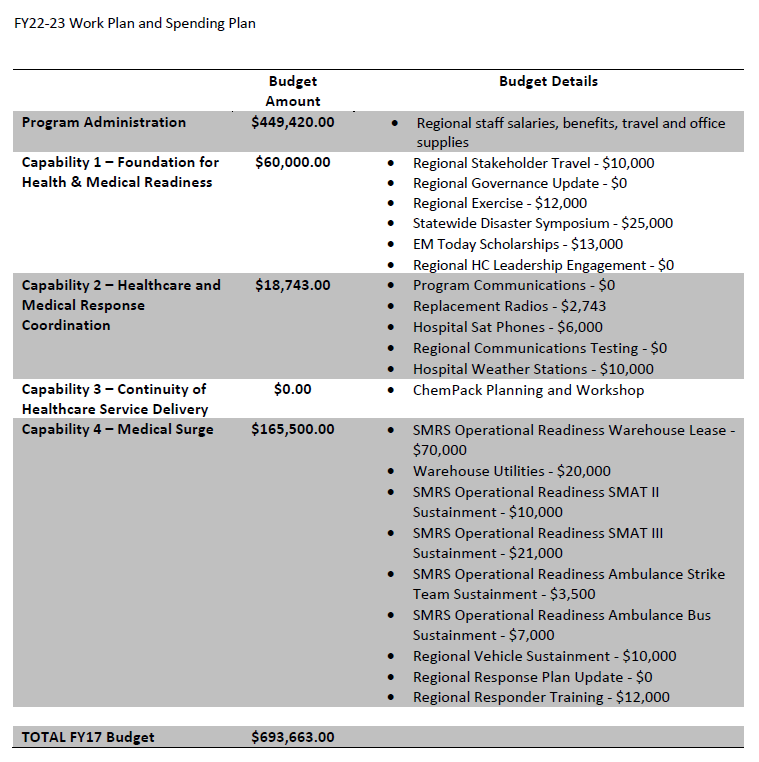Current Projects (HC)
2017-2022 Health Care Preparedness and Response Capabilities
Capability 1. Foundation for Health Care and Medical Readiness
The foundation for health care and medical readiness enables the health care delivery system and other organizations that contribute to responses to coordinate efforts before, during, and after emergencies; continue operations; and appropriately surge as necessary. This is primarily accomplished through health care coalitions (HCCs) that incentivize diverse and often competitive health care organizations with differing priorities and objectives to work together.
Capability 2. Health Care and Medical Response Coordination
Health care and medical response coordination enables the health care delivery system and other organizations to share information, manage and share resources, and integrate their activities with their jurisdictions’ Emergency Support Function-8 (ESF-8, Public Health and Medical Services) lead agency and ESF-6 (Mass Care, Emergency Assistance, Housing, and Human Services) lead agency at both the federal and state levels.
Capability 3. Continuity of Health Care Service Delivery
Optimal emergency medical care relies on intact infrastructure, functioning communications and information systems, and support services. The ability to deliver health care services is likely to be interrupted when internal or external systems such as utilities, electronic health records (EHRs), and supply chains are compromised. Disruptions may occur during a sudden or slow-onset emergency or in the context of daily operations. Historically, continuity of operations planning has focused on business continuity and ensuring information technology (IT) redundancies. However, health care organizations and health care coalitions (HCCs) should take a broader view and address all risks that could compromise continuity of health care service delivery.
Capability 4. Medical Surge
Medical surge is the ability to evaluate and care for a markedly increased volume of patients that exceeds normal operating capacity. Providing an effective medical surge response is dependent on the planning and response capabilities developed in Capability 1 – Foundation for Health Care and Medical Readiness, Capability 2 – Health Care and Medical Response Coordination, and Capability 3 – Continuity of Health Care Service Delivery. Developing health care coalitions (HCCs) is especially important to support the coordination of the medical response across health care organizations.
Current Workplan


